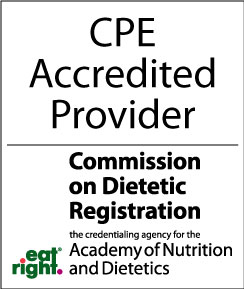8:30 am – 12:00 pm
San Diego Hilton Bayfront, Indigo D
Program Description
Decades of epidemiologic investigation and clinical studies have transformed the way nutritional science is viewed and reviewed. This symposium will define and provide translational techniques for various types of studies utilized for nutrition research. Presenters will share how to best understand outcomes and give insight as to how consumers and health professionals view research publications. Strategies to blend basic science research with clinical investigations to influence consumer behavior and public health initiatives will be provided. Cell research, clinical trials and dietary patterns will be discussed emphasizing the relationships among human health, food and lifestyle. Novel implementations for understanding human nutritional requirements and the regulation of human metabolism will be reviewed emphasizing specific whole food case studies.
CPE Credit Designation Statement
ASN designates this educational activity for a maximum of 3.5 CPEUs. Dietitians and dietetic technicians, registered should only claim credit commensurate with the extent of their participation in the activity. ASN (Provider #NS010) is accredited and approved by the Commission on Dietetic Registration (CDR) as a provider of Continuing Professional Education (CPE) programs for Registered Dietitians.
Learning Level 2
Click here for the CPE evaluation.
Suggested Learning Codes:
(2000) Science of food and nutrition
(2020) Composition of foods, nutrient analysis
(2070) Macronutrients: carbohydrate, fat, protein, fiber, water
(2090) Micronutrients: vitamins, minerals
(2100) Nutritional biochemistry
(4000) Wellness and public health
(4040) Disease prevention
(5370) Weight management, obesity
Learning Objectives
At the end of the program participants will be able to:
- Critically review and differentiate between various types of research studies;
- Describe the strengths and limitations of peer-reviewed research focusing on recognition of emerging science vs. scientific consensus;
- Identify means to accurately determine associations between specific foods or diet patterns and health in order to better assess the validity of conclusions; and
- Translate dietary recommendations into practice with a sound understanding of how to effectively communicate relevant nutrition science issues.
Agenda
 |
Scientific Advances Supporting Dietary Recommendations Johanna T. Dwyer, DSc, RD, Senior Scientist, Jean Mayer USDA Human Nutrition Research Center on Aging and Tufts University School of Medicine |
 |
Deconstructing the Science to Better Understand Outcomes Roger Clemens, DrPH, Adjunct Professor of Pharmacology and Pharmaceutical Sciences within the USC School of Pharmacy |
 |
Food, Nutrients and Whole Diets: Working Across the Layers of Evidence for Practice Linda Tapsell, PhD, FDAA, Professor, Faculty of Science, Medicine and Health, University of Wollongong |
 |
Consumer Perspectives on Foods That Can Reduce Chronic Disease: How Americans View Their Own Diets, Their Efforts to Improve Them and Where the Health Professional Fits Marianne Smith Edge, MS, RD, Senior Vice President, Nutrition & Food Safety, International Food Information Council |
 |
Translation and Utilization of Science-Based Evidence by Health Professionals: Bring the Science to the Dinner Table JoAnne Foody, MD, FACC, FAHA, Director, Cardiovascular Wellness Program; Brigham and Women’s Hospital, Associate Professor, Harvard Medical School |

